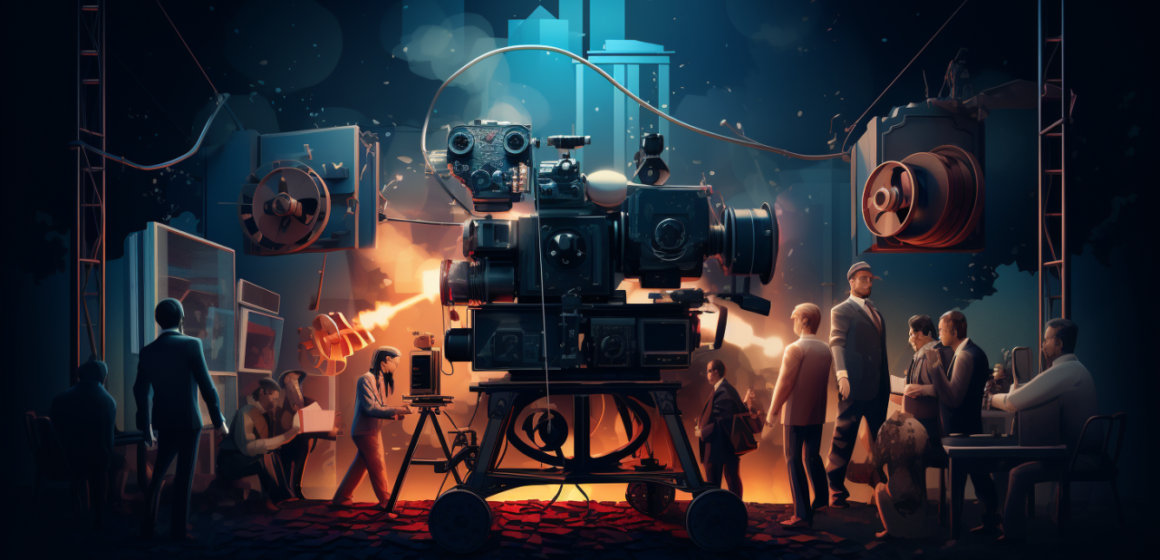The Rise of AI in Music and Film: How Technology is Changing Entertainment
Artificial intelligence (AI) is revolutionizing the entertainment industry, changing how music is composed, how films are created, and even how audiences engage with content. What was once the domain of human creativity is now being enhanced—or in some cases, challenged—by AI-driven tools. But is this a step forward or a risk to artistic expression? Let’s explore how AI is reshaping music and film.
AI in Music: Composing the Future
🎵 AI-Generated Music: From Assistive Tool to Composer
AI-driven programs like OpenAI’s Jukebox, Google’s Magenta, and Sony’s Flow Machines can compose original music, mimicking the styles of legendary artists or even generating completely unique sounds. These systems analyze thousands of songs, learning musical patterns and structures to create melodies, harmonies, and lyrics.
Famous examples include:
- “Daddy’s Car” (2016) – An AI-composed song in the style of The Beatles.
- Grimes’ AI-Generated Voice (2023) – The singer encouraged fans to use AI to create songs using her voice, demonstrating AI’s potential in vocal synthesis.
🎧 How AI Is Used in Music Production:
- Songwriting & Composition: AI tools help artists generate ideas, create chord progressions, and even finish songs.
- Vocal Synthesis: Programs like Synthesia and DeepVocal can mimic human voices, making it possible to “resurrect” deceased artists or modify vocals in real time.
- Remastering & Restoration: AI helps restore old recordings, improving sound quality and eliminating background noise.
🎼 Threat or Opportunity?
While AI can create impressive compositions, some critics argue that it lacks true emotion and human touch. Many artists worry that AI-generated music could flood the industry, making it harder for human musicians to compete. However, others see AI as a powerful tool that enhances creativity rather than replacing it.
AI in Film: A Cinematic Revolution
🎬 AI in Scriptwriting and Editing
AI tools like ScriptBook and DeepStory analyze successful scripts to predict whether a screenplay will be a hit. They can also help writers generate dialogues or structure narratives.
🎥 How AI is Changing Film Production:
- Deepfake Technology: AI-powered deepfake tools can replace actors’ faces, de-age performers, or even bring back deceased actors (e.g., Carrie Fisher in Star Wars: The Rise of Skywalker).
- CGI & Special Effects: AI enhances CGI, making realistic visuals faster and cheaper to produce. Movies like Avengers: Endgame and The Lion King (2019) relied heavily on AI-generated effects.
- Automated Video Editing: AI-driven software like Adobe Sensei and Runway AI speeds up the editing process by identifying key moments and improving post-production workflows.
🎭 Will AI Replace Actors and Filmmakers?
With AI-powered virtual actors and deepfake technology, some speculate that human actors may one day be replaced. However, Hollywood is still resistant to fully AI-generated films, as audiences crave authentic human performances. Instead, AI is being used as a tool to enhance human creativity rather than replace it.
The Ethical Dilemma: AI vs. Human Creativity
While AI is an incredible innovation, it raises serious ethical and artistic concerns:
⚠️ Job Displacement: Will AI-generated music and films reduce demand for human artists and crew members?
⚠️ Copyright Issues: AI can create music or scripts based on existing works, raising legal concerns about plagiarism and ownership.
⚠️ Loss of Human Emotion: Can AI truly capture the depth of human emotion in music and film?
Conclusion: The Future of AI in Entertainment
AI is undeniably transforming the entertainment industry. Whether it’s composing music, enhancing CGI, or predicting box office hits, AI is here to stay. However, rather than replacing human creativity, AI is more likely to serve as a tool that amplifies artistic expression.
The real question is: Will we embrace AI as a creative partner, or will it one day challenge the very nature of human artistry?


Leave a Reply